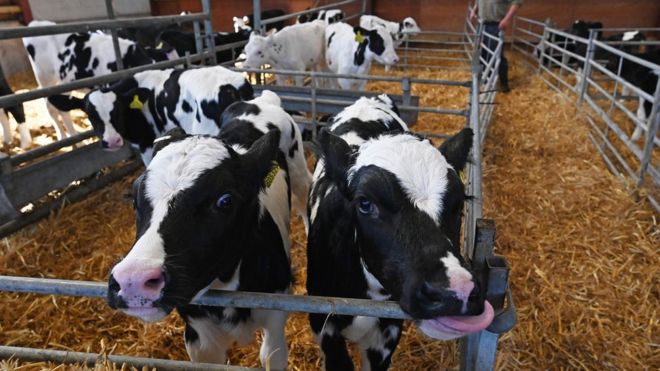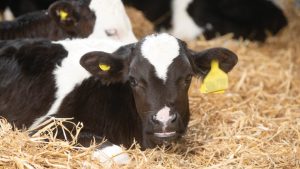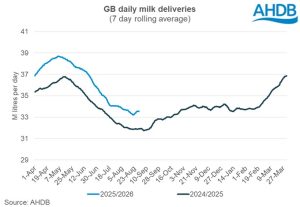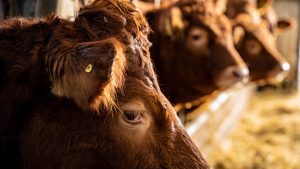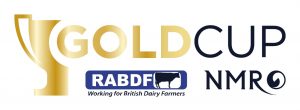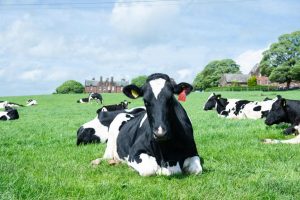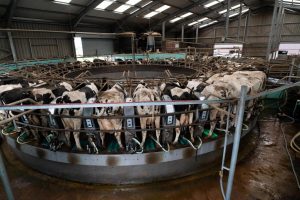
Demand for dairy products in the hospitality sector has dropped with the closure of many cafes and restaurants.
Producers will be eligible for aid to cover 70% of income they have lost during April and May.
Ministers have already relaxed competition laws in a bid to help the industry.
The Department for Environment, Food and Rural Affairs said there would not be a cap on the number of farmers who can receive the payments.
But farmers would have to demonstrate they had lost more than a quarter of their income in April and May to access the funding, the department added.
Some dairy farmers are having to throw away thousands of litres of fresh milk due to disruption to the supply chain caused by the virus.
Whilst some have managed to redirect supplies towards supermarkets, falling demand has seen excess milk and therefore falling prices.
The government has already relaxed competition rules to allow farmers to share staff and facilities with retailers in a bid to reroute produce.
Environment Secretary George Eustice says ministers were doing “all we can” to make sure dairy farmers are “properly supported” during the current crisis.
“We’ve already relaxed competition laws so dairy farmers can work together through the toughest months, but recognise there is more to be done,” he added.
Joe Stanley, vice-chair of the Leicestershire National Farmers Union, said the new funding was welcome but additional support “shouldn’t have taken this long”.
Speaking to the Environment, Food and Rural Affairs Committee on Tuesday, the National Farmers’ Union (NFU) president said many farmers were in “absolute crisis”.
Minette Batters told MPs: “We have got a lot of them on a relatively stabilised price of 15p per litre (of milk). That is about 10p and more below the cost of production. It is not a sustainable place to be.”
Tom Hind, chief strategy officer for the Agriculture and Horticulture Development Board, also told the committee that dairy farmers had lost £7.4m collectively in April through milk price cuts alone – a figure that could rise to £14m in May.
Advertising campaign launched
The move comes as a £1m advertising campaign is launched to try and persuade people to drink more milk at home.
Joint funded by industry groups and the government, it will feature adverts on television and posted on social media.
The NFU said the campaign would promote tea and coffee drinking as a “centre point of most human connections”.
The union’s dairy board chairman Michael Oakes said the advertising drive would be a “much-needed and timely boost for the dairy sector”.
